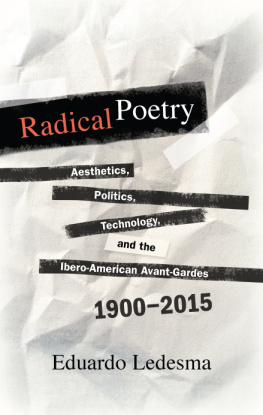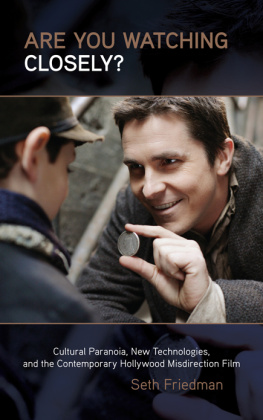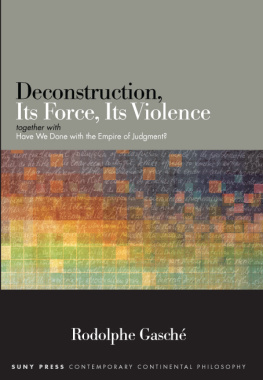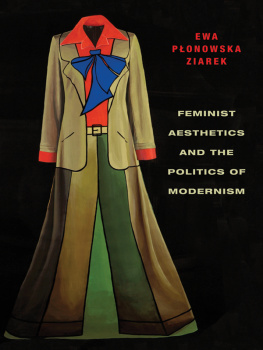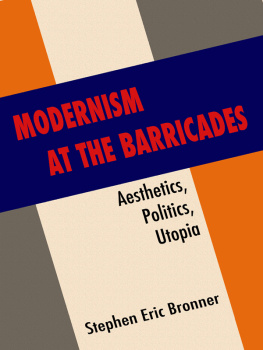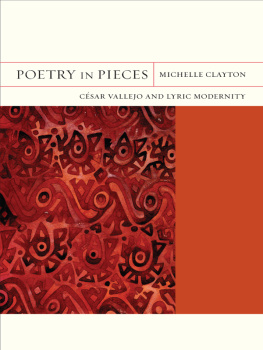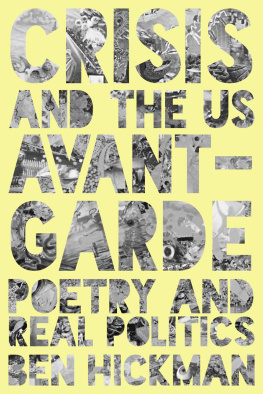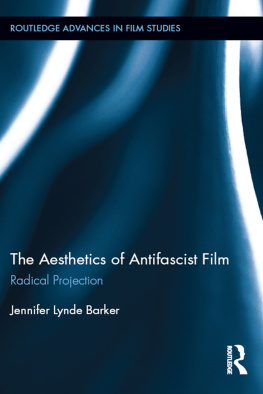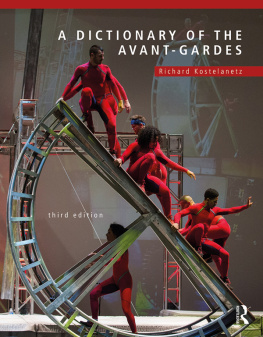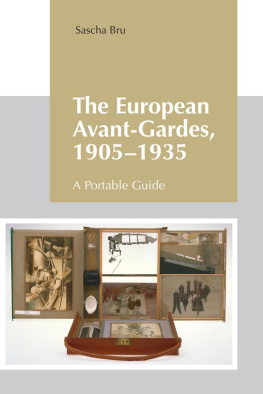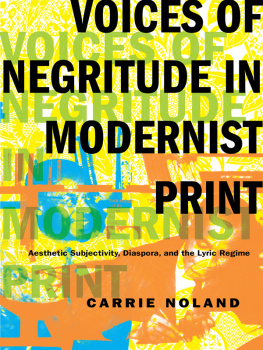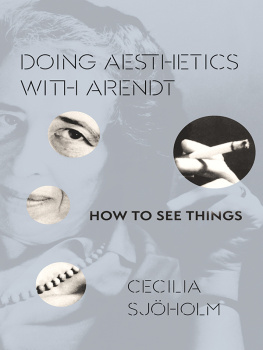Radical Poetry
SUNY series in Latin American and Iberian Thought and Culture
Jorge J. E. Gracia and Rosemary Geisdorfer Feal, editors
Radical Poetry
Aesthetics, Politics, Technology,
and the
Ibero-American Avant-Gardes,
19002015
Eduardo Ledesma
Published by State University of New York Press, Albany
2016 State University of New York
All rights reserved
Printed in the United States of America
No part of this book may be used or reproduced in any manner whatsoever without written permission. No part of this book may be stored in a retrieval system or transmitted in any form or by any means including electronic, electrostatic, magnetic tape, mechanical, photocopying, recording, or otherwise without the prior permission in writing of the publisher.
For information, contact State University of New York Press, Albany, NY
www.sunypress.edu
Production, Emily Keneston
Marketing, Anne M. Valentine
Library of Congress Cataloging-in-Publication Data
Names: Ledesma, Eduardo, 1972 author.
Title: Radical poetry : aesthetics, politics, technology, and the Ibero-American avant-gardes, 19002015 / Eduardo Ledesma.
Description: Albany, New York : State University of New York Press, 2016. | Series: SUNY series in Latin American and Iberian thought and culture | Includes bibliographical references and index.
Identifiers: LCCN 2016000471 | ISBN 9781438462011 (hardcover : alk. paper) | ISBN 9781438462028 (ebook)
Subjects: LCSH: Experimental poetry, Latin AmericanHistory and criticism. | Avant-garde (Aesthetics)Latin America. | Modernism (Literature)Latin America.
Classification: LCC PQ7082.P7 L446 2016 | DDC 861.009/98dc23 LC record available at https://lccn.loc.gov/2016000471
10 9 8 7 6 5 4 3 2 1
Contents
Figures
Acknowledgments
This project would have been impossible without the support of many generous individuals and institutions. I wish to express my deep gratitude to my professors at Harvard University, and also at the University of Illinois-Chicago, for guiding me as a young scholar through my transition from structural engineer to literature, film, and new media professor, and for offering advice at various stages of this project. I am grateful to my committee, Brad Epps, Luis Fernndez-Cifuentes, Joaquim-Francisco Coelho, and David Rodowick, for their tireless reading and for nurturing this project in its initial stages. I am especially indebted to Brad Epps, my thesis director, for his unfailing and constant support and friendship throughout the years, as well as his invaluable guidance during my dissertation writing. My very warmest thanks to Leda Schiavo, who suggested to me (in my first-ever literature class at the University of Illinois at Chicago) that, yes, one could indeed make a profession of that which one loved, the study of culture, initiating me on this path. To Matthew J. Marr (now at Penn State), for his constant counsel and friendship from my very first days at the University of Illinois at Chicago. Likewise to Rosilie Hernndez, Christian Roa, Margarita Saona, Klaus Mller-Bergh, and all my other professors at UIC. At Harvard, many thanks to Mariano Siskind and Sergio Delgado, who counseled me on many academic matters. I would also like to thank my wonderful colleagues and friends in the Department of Spanish and Portuguese at the University of Illinois at Urbana-Champaign, who have generously shared their advice and expertise, especially Mariselle Melndez for her steadfast guidance and mentorship, our department chair, Silvina Montrul, and also my literature colleagues Ericka Beckman, Elena Delgado, Dara Goldman, Glen Goodman, Javier Irigoyen-Garca, and Joyce Tolliver, as well as Luciano Tosta (now at the University of Kansas), and of course, all the other colleagues at Illinois, too many to mention. My thanks also to our energetic graduate students at Illinois, especially those that endured my graduate seminar on experimental poetry and art in the fall of 2014 and provided intelligent feedback. To many other colleagues elsewhere, especially those working on experimental poetry and on electronic literature within our field of Hispanism and in other disciplines, with whom I have had the pleasure of exchanging ideas and many of whom have provided feedback at various conferences and on earlier versions or parts of this work, including Ofra Amihay, Laura Borrs Castanyer, Debra Castillo, Hilda Chacn, Osvaldo Cleger, Luis Correa-Daz, Christine Henseler, Lauren Walsh, Scott Weintraub, and many more. I would also like to thank the excellent anonymous readers for SUNY press, who, with their insightful comments, were instrumental in making Radical Poetry a much better text.
Preliminary and partial versions of some sections, extensively revised, have been previously published in: Hispanic Issues Online 9 (2012), Arizona Journal of Hispanic Cultural Studies 14 (2010). Significantly revised portions of were originally published in the Arizona Journal of Hispanic Cultural Studies 14 (2010) and are reproduced here with the permission of the editors of the journal. I would like to express my gratitude to all the poets and their publishers for generously granting permission to reprint their works. Every effort has been made to trace and acknowledge all copyright holders and I would like to apologize for any errors or omissions.
Many institutions provided support for this project. First, I am indebted to the Fulbright Commission, which generously funded a year of research in Spain in 200910. Harvard University provided a number of fellowships and grants that funded several research trips to Latin America in the summers of 2008 and 2011. I should also like to thank the University of Illinois Campus Research Board for a supported semester teaching leave (Spring 2015) that was instrumental for completing this book.
On a personal note, I would like to thank my dear friends Eugenio DiStefano, Emilio Sauri, Ana Martn Sagredo, Susana Domingo Amestoy, Tara Toscano, Steve Buttes, Anne Bink, Lotte Buiting, Sergi Rivero, Melissa Machit, Ernesto Livn-Grosman, and many, many others, for all your support over the years.
A very special note of thanks to Beth Bouloukos at SUNY, who eased the process of turning my rough manuscript into a book, and is the best acquisitions editor one might hope for.
And most especially, to my family: my mother Rosario, my sister Carolina, and my amazing niece Ana, thank you for all your love and support.
And, still for Jill
Introduction
An Overview

R adical Poetry . The title of this work immediately prompts questions: What does radical mean when describing poetry? Is radical a reference to transgressive aesthetic or dissident political practice, or both? How can poetry be radical in our time, and more specifically, how can it be so in Ibero-America? This project began as a kind of experiment in understanding these questions, and experimental also defines the project. Indeed, assembling a text that deals with both broad theoretical questions such as these and studies poetry from a vast geographical area requires an anchor point, a coherent center, provided here by the notion of experimental. This book weaves together two intimately related research objectives in order to illuminate the centrality of experimental poetry to the Ibero-American avant-gardes: one, an investigation into how the most contemporary digital vanguard is linked with, and owes much of its practice to this lengthy experimental tradition; two, a critical reanalysis of the artistic and political concerns of past Ibero-American avant-gardes in order to shed new light on a century of experimental poetry.

